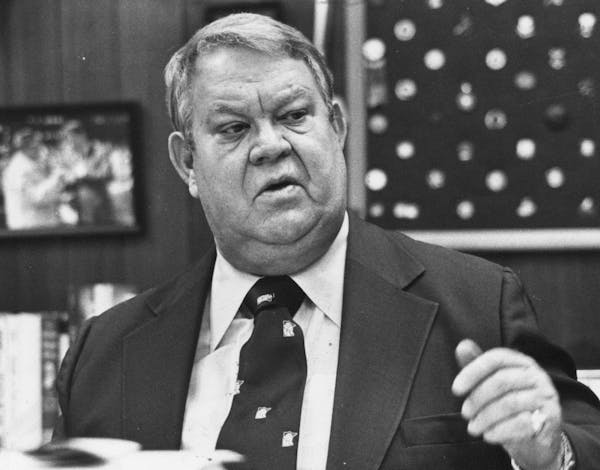The NBA brought Timberwolves owner Glen Taylor back to its Board of Governors' chairmanship on an interim basis two weeks ago, just in time for him to become intimately involved in a sensational, offensive controversy that has swept the league.
In his newly reacquired role, Taylor conferred with NBA Commissioner Adam Silver, consulted with fellow owners and spoke with Los Angeles Clippers owner Donald Sterling before Silver announced Tuesday that he has banned Sterling for life and will try to force him to sell his team.
"Not three days that I wish to have again," Taylor said Tuesday, his voice sounding weary. "It's just kind of a sad experience, the situation we're going through here. But one we need to deal with."
The NBA removed from its exclusive club its most tenured owner because of a secretly taped conversation revealed Friday night by the celebrity-gossip website TMZ. In that conversation, Sterling, among other racist comments, asked a female companion not to bring black people to his team's games.
Taylor called Sterling's words "reprehensible" and praised Silver's swift action to deal with such viewpoints in a league long known as the leader among major pro sports for its racial diversity.
"That's why everybody feels so hurt about it, because it's inconsistent with the NBA's history," Taylor said. "Some very serious action is needed to make sure everybody knows it's not condoned."
In 2000, NBA Commissioner David Stern suspended Taylor for a season because of a secret contract agreement with free-agent Joe Smith that attempted to circumvent the salary cap.
On Tuesday, Taylor worked out details from his Mankato office for what he called "severe punishment" handed out by a new commissioner only 88 days on the job. He said he supports Silver "100 percent."
Taylor will lead an owners' committee that will pursue pushing Sterling out of their league. According to its bylaws, owners can vote with a three-fourths majority to force Sterling to sell the Clippers, which he bought in 1981 for $12.5 million.
Taylor said he hopes the NBA reaches agreement with Sterling to sell the franchise before it comes to that, or before he wages a long legal battle.
"I'm not worried about the votes to do so," Taylor said. "I think we're going into some uncharted areas, and we want to make sure we take each step with caution and make sure we're doing the right thing, knowing there could be some legal challenges where we're going. We want to move in one sense with some speed but in another sense making sure we come to a conclusion here."
Wolves players reacted Tuesday on Twitter, by text message and phone after their fellow NBA players discussed boycotting playoff games if Sterling wasn't severely disciplined.
Kevin Martin said by text, "Today we realized that our league is in good hands for a very long time due to Commissioner Silver's response to these unethical comments by Donald. We look at our league as one big family and today was a step in the right direction to make our family stronger."
From his Minneapolis apartment, Wolves players' union representative Robbie Hummel watched Silver's televised news conference Tuesday after he listened in Monday on a union teleconference.
"Everybody voiced their opinion last night that something needed to be done, and the league got it right," Hummel said. "It's incredible to see in a time like today that we still have things like this happening."
Former Clippers General Manager Elgin Baylor accused Sterling of a "plantation mentality" in a 2009 wrongful-termination lawsuit — his race charges later were dropped — that Baylor lost. That same year, Sterling agreed to pay a record $2.7 million to settle allegations he discriminated against African Americans and Hispanics while renting Los Angeles apartments.
When asked why the NBA did nothing until Tuesday, Taylor noted the outcome of Baylor's lawsuit and said he had no personal knowledge of Sterling's views.
"I was never in a conversation or an environment where I personally had seen this or heard this from Don," he said. "If it's happened, the only things I'm aware of are what is reported in the news. I hadn't personally seen it."
Sterling argued in his discussion with Taylor that he was taped illegally in a private conversation.
"That certainly came up as part of the information," Taylor said. "But it just got outweighed now that it is out in public. How it got out is secondary to what got out. … I don't think there was any other decision to be made but this one."
NHL PLAYOFFS: 'It's wide open' is the theme as the race to the Stanley Cup begins
Debate over tight end value hovers over Brock Bowers' draft prospects

